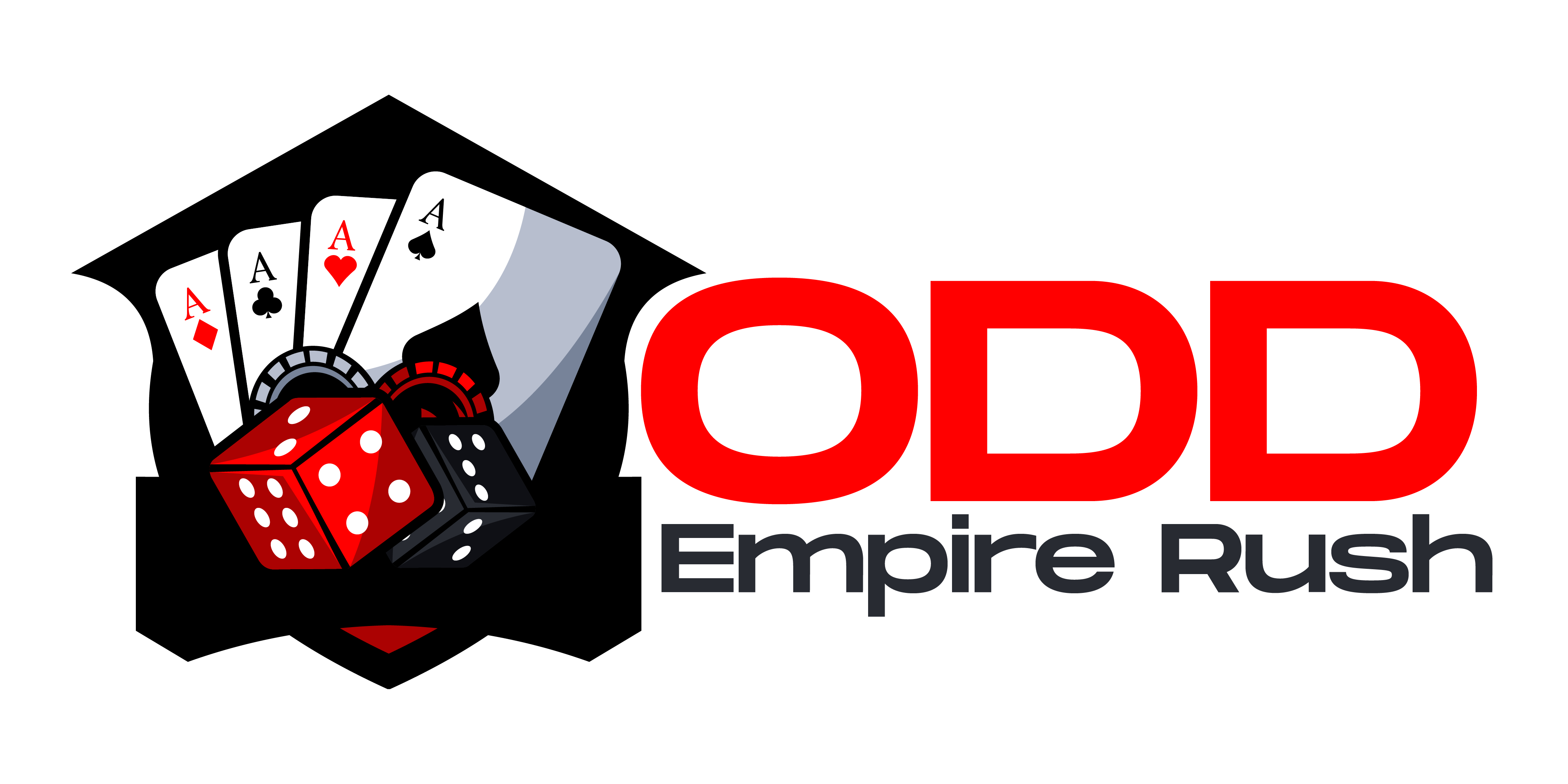Introduction
Betting isn’t about blind luck. Not if you’re serious. At its core, it’s strategy meets discipline. The edge doesn’t come from crossing your fingers—it comes from knowing the numbers, understanding the game, and playing smarter than the rest.
The truth? Casual gamblers bankroll the winnings of informed bettors. The ones who study line movement, know when the market overreacts, and manage their risk meticulously. They’re not guessing. They’re calculating.
This guide is built for those ready to stop treating betting like a hobby and start treating it like a system. If you’re done making impulse picks and are ready to approach betting like a pro—tight, informed, focused—keep reading. Let’s level up.
The Shift from Casual to Analytical Betting
Here’s the truth: most people gamble. Few actually bet. Gambling is flipping a coin and hoping it lands heads because you feel lucky. Disciplined betting is doing the math, spotting the edge, and staking only when it makes sense.
Disciplined bettors treat it like an investment. They lean on research, probabilities, and rational thinking. Emotions don’t enter the equation. If the odds don’t offer value, they walk away. Casual gamblers? They chase thrills. They bet on the team they love, or the one that feels due. Usually, that ends in a losing bankroll and a few regretful Sunday nights.
What separates a win from a guess is data. From injury reports to venue stats, weather patterns to historical matchups—it all informs a smarter play. Betting based on gut feeling is a strategy for losing over time.
So, ask yourself:
- Do I have a clear reason for every bet I place?
- Am I chasing losses or sticking to a plan?
- Do I track my results and learn from them?
- Do I base decisions on data, or vibes?
If you answered mostly the second option, you’re not betting yet—you’re gambling. It’s time to upgrade.
Bankroll Management as a Core Strategy
Discipline beats excitement in betting—and it starts with bankroll management.
Set a budget. Make it real. It should be an amount you’re fine losing without it affecting rent, food, or sleep. That budget is your bankroll, not a flexible fantasy, but a clear number you stick to 100% of the time.
Next, break that bankroll into units. A typical unit is 1-2% of your total bankroll. Why that small? Because losing streaks happen. Betting in units isn’t glamorous, but it’s how you survive the downs and stay in the game long enough to benefit from the ups.
Smart bettors understand the long haul. They stack small edges. Compounding gains over time beats the temporary high of hitting a big parlay. Chasing losses with bigger bets to “get it all back” is the fastest road to burning through your bankroll and tapping out.
Top sharps use strategies like the Kelly Criterion, flat betting, or percentage staking—each tailored to different profiles and risk tolerances. What they all have in common: a plan. Random betting is for gamblers. Strategy is for bettors who want to win.
Bottom line: treat your bankroll like a business budget. There’s no shortcut. Just math, mindset, and grinding it out with discipline.
Mastering Value Betting
Value betting isn’t flashy. It’s not about thrills or guts—it’s about math and discipline. At its core, value betting is identifying when the odds offered by a bookmaker are higher than the actual probability of an event happening. That gap? That’s your edge.
Let’s break it down. Say a team has a 50% true chance to win. That equates to implied odds of 2.00. If a bookmaker offers odds of 2.20, they’re mispricing the event—and that’s value. Betting at 2.20, in this case, is expected to turn a profit over time, even if some individual bets lose.
Finding value means spotting inefficiencies across different books. Sportsbooks frame odds not just on data, but also based on market pressure and public perception. That creates opportunities, especially if you’re hunting across multiple platforms. Compare lines. Use odds aggregators. Focus where markets are slower to react—like niche sports or smaller leagues.
The proof is in the math. If you’re consistently betting on edges, you’re stacking the deck in your favor long-term. Profit may not be instant, but over hundreds of bets, your ROI shows up.
To do it well, most sharp bettors rely on tools. Think probability calculators, line trackers, and arbitrage scanners. Some even code custom scripts to flag mispriced outcomes. But tools aren’t magic—they support judgment. You still need to know what value looks like and when to pull the trigger.
At the end of the day, value betting is about staying cold, tactical, and relentless. Look for mispricing. Exploit it. Repeat.
Leveraging Specialized Knowledge
Most bettors chase the big leagues. That’s where the noise is—and where the lines are tightest. Oddsmakers put the most resources into high-traffic events, so your edge there? Slim. But if you focus on niche markets—think lower-tier soccer leagues, overseas basketball, or obscure prop bets—you’re competing against less informed money and softer lines.
Specialization gives you control. Get familiar with a specific league or market, and you start to notice what everyone else misses: underreported injuries, local weather factors, team dynamics that don’t trend on Twitter. That insider depth beats generic “gut feeling” betting every time.
The catch? Stay clean. Insider knowledge isn’t the same as insider trading. Don’t cross ethical or legal boundaries—no tampering, no leaks from within organizations. What you want is sharp observation, not shady info.
Bottom line: the deeper you go into a niche, the better your shot at long-term profit. Broad strokes lose money. Precision wins.
Live Betting Tactics
In-play betting, or live betting, gives you something pre-match wagers can’t: a chance to read the game as it unfolds. When done right, it’s an edge. You can spot shifts—the sudden dip in intensity, a key injury, nerves settling in—and make calls before odds adjust. That window is where opportunity lives.
It’s not about betting constantly during the game. The best bettors stay patient. They watch momentum, not just numbers. A big underdog down early but playing sharper? That’s not just noise—it might be a value play in disguise.
But here’s where it gets tricky: speed matters in live betting, and so does control. Bookmakers tweak odds in seconds. Fast fingers help, but getting too reactive burns bankrolls. The top bettors strike a balance—quick reads, calm hands. They move fast but only when it checks out with what they know.
Don’t chase every fluctuation. Do trust your prep and instincts.
Done right, live betting isn’t chaos—it’s precision inside the storm.
Avoiding Common Pitfalls of Advanced Bettors
Once you graduate from casual to calculated betting, it’s easy to fall into a new set of traps. The first—and often deadliest—is overconfidence in your system. Just because a method worked for five straight weekends doesn’t mean it’s bulletproof. Betting markets evolve fast. What worked last month can get crushed by new info, sharper lines, or unexpected variables. Stay skeptical, even of your own success.
Then there’s the streak trap. Hot streak? You feel invincible. Cold streak? You start forcing bets to feel something. Either way, you’ve lost control. Good bettors don’t ride emotions. They detach, zoom out, and follow their process no matter what the last five outcomes looked like.
Ignoring market signals is another silent killer. Odds don’t shift for no reason. A sudden move might reflect sharp money, injury news, or inside info you missed. You don’t have to chase every shift, but you can’t bet like lines stay frozen. Smart bettors treat market movement as data, not background noise.
Mental discipline matters. Build routines that keep you grounded—pre-bet checklists, post-bet reviews, breaks from the board. Betting isn’t about thrills. It’s about execution.
Want more on mental strategy? Here’s a solid place to start: Developing a Winning Mindset for Successful Betting.
Tracking and Adapting for Long-Term Success
To succeed in betting over the long haul, you need more than strategies and strong instincts—you need reliable data. Consistently tracking your performance allows you to identify trends, avoid past mistakes, and refine your approach based on hard evidence, not guesswork.
Why Betting Records Matter
Most casual bettors remember wins and forget losses. Serious bettors do the opposite: they track everything.
Benefits of keeping detailed records:
- See which strategies consistently return profits
- Understand ROI on different bet types or sports
- Eliminate guesswork from future decisions
- Stay emotionally detached and rational
What to Track
You don’t need complex software to start—basic spreadsheets can provide huge insights.
Key data points to record:
- Date and time of the bet
- Type of bet (spread, moneyline, over/under, etc.)
- Stake (amount wagered)
- Odds / line taken
- Result (win, loss, push)
- Payout or loss amount
- Notes on reasoning or external factors
Evaluating and Refining Your Strategy
Once you collect enough data, begin analyzing:
- Which sports or markets are most profitable?
- Are certain bet types underperforming?
- Do you bet more aggressively after a win or loss?
- Which bookmakers or lines offer the best value?
These analyses give you a performance-based roadmap so you can double down on what works and drop what doesn’t.
Identify Patterns and Fix Flaws
Data helps reveal behavioral patterns you might not notice in the moment.
Common discoveries include:
- Consistently poor performance during specific leagues, time periods, or bet types
- Non-profitable emotional betting streaks
- Overexposure to certain outcomes or teams
Use what you uncover to adapt—not just react. Being flexible and evolving with your results is what separates long-term winning bettors from those hoping for luck to change.
Conclusion
Betting isn’t magic, and it’s definitely not a get-rich-quick game. It’s a skill. It rewards the same qualities as anything worth mastering: discipline, patience, analysis, and long-term commitment. The most successful bettors don’t chase adrenaline—they build systems, track results, think in probabilities, and learn from their missteps without emotion clouding the view.
Strategy matters. So does the ability to adapt as the markets shift. What separates the winners from the rest isn’t one big score—it’s years of small, right decisions stacked together.
If you want to gain an edge, build habits before you build bets. Show up, stay sharp, and stay consistent. That’s how real success in betting is made.


 Lillian Wagneroler, an insightful author at oddsempirerush focuses on in-depth research and engaging storytelling. Her articles provide fresh perspectives on betting trends, helping readers connect with the latest developments in the industry.
Lillian Wagneroler, an insightful author at oddsempirerush focuses on in-depth research and engaging storytelling. Her articles provide fresh perspectives on betting trends, helping readers connect with the latest developments in the industry.

